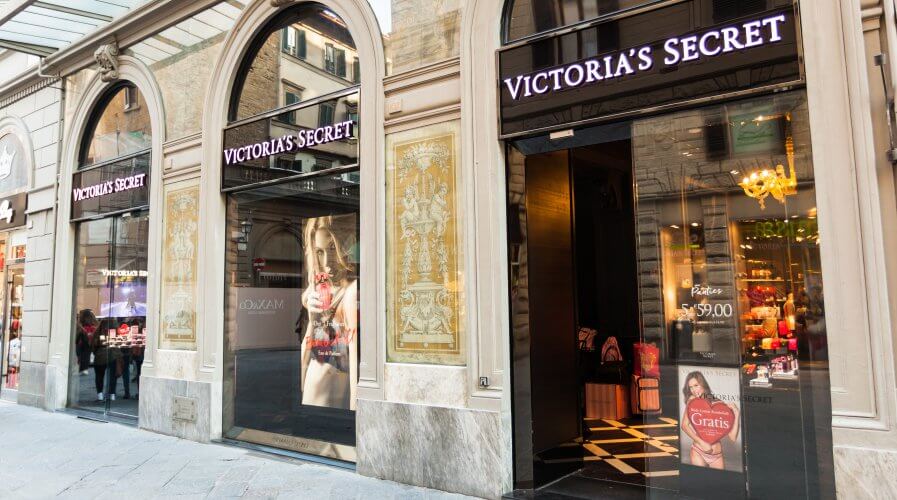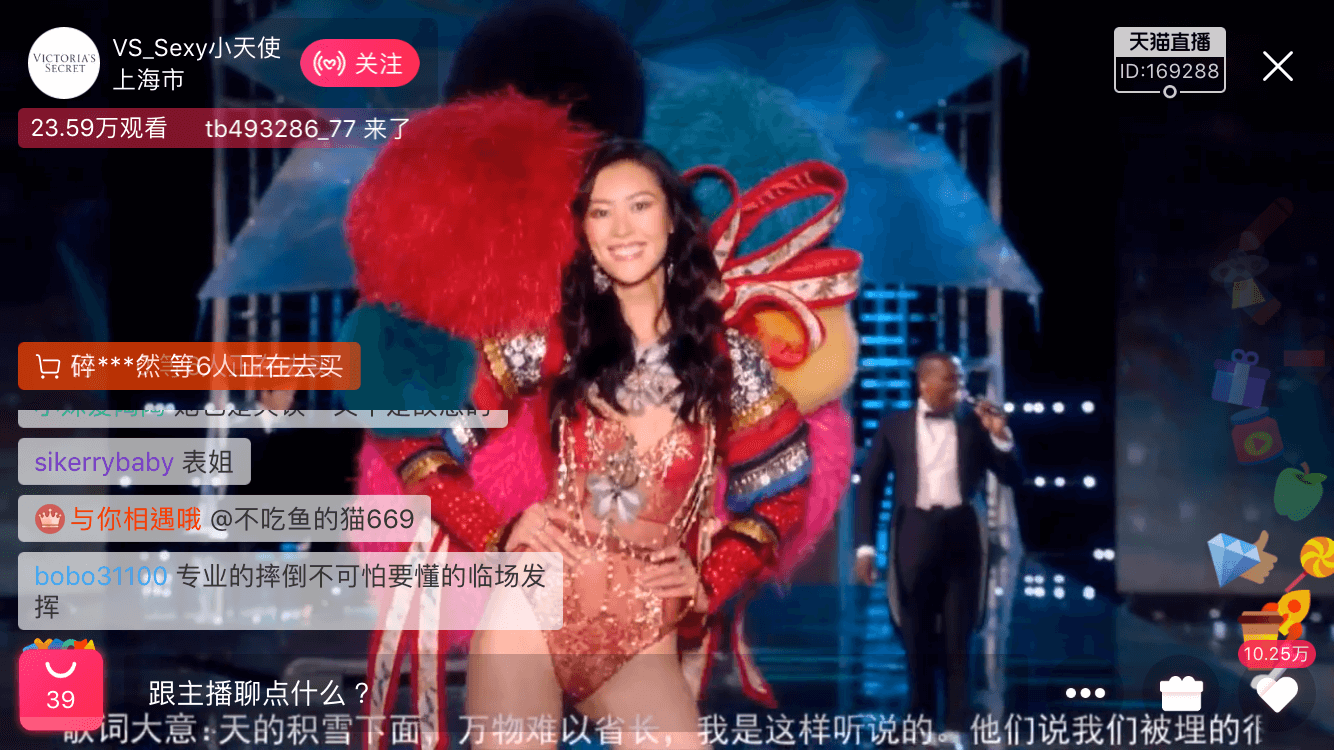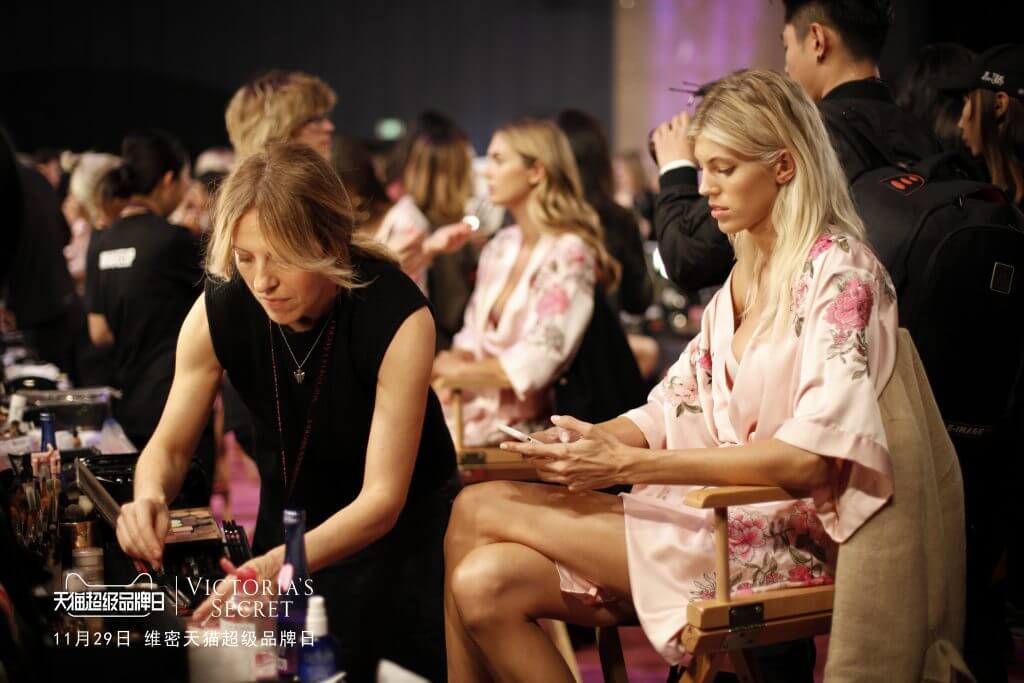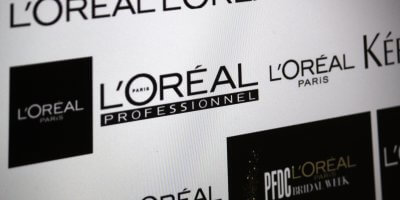
Victoria’s secret is making huge strides into Asia with megastores and their annual fashion show. Source: Shutterstock
Victoria’s Secret reaches out to China, Alibaba-style
PLAYING OFF the popularity of the annual Victoria’s Secret runway show, Alibaba introduced its popular “See Now, Buy Now” to the fashion event which had its very first Asia show in Shanghai yesterday.
The global lingerie brand, known for its “Angel” supermodels – not unlike the idols that exist in China’s media landscape – was directly hooked up to Alibaba’s Tmall and Taobao shopping platforms, and could be streamed on their Youkou video site all across the globe. The stream, employing the “See Now, Buy Now” format, allowed customers to make immediate purchases of the products they saw gliding across their screens.
Consumers were also able to interact with the show through Taobao and Tmall apps, and featured elements recognizable from Chinese livestreaming channels such as comments and “gift” emojis that flash across the screen. Similar tools were deployed during Alibaba’s massive Singles’ Day shopping festival, which also featured acts by local rapper VaVa and pop icon Chris Lee. The Victoria’s Secret show featured American stars Harry Styles, Leslie Odom Jr. and local pop sensation Jane Zhang.
The formula of mixing spectacle with shopping has earned Alibaba – and other Chinese counterparts – accolades and huge bucks. Alibaba has taken the idea of entertainment marketing to the extreme, fashioning an event that is glitzy consumerism at its best.
The entertainment factor is key to helping to drive consumer loyalty and buy-in, which has proven to be an effective strategy for turning eyeballs into dollar revenue. During Singles’ Day (also known as the 11.11 festival), Alibaba generated a little over US$26 billion.

Victoria’s Secret took advantage of China’s live-streaming culture to reach out to customers. Source: Alizila
Viewers of the Victoria’s Secret fashion show will be featured across Taobao and Tmall in tandem with the brand’s on-site “Super Brand Day” promotions. Tmall will be the only place Chinese consumers can access the brand’s products online. Some exclusive products such as limited edition dressing robes will also be made available.
For second-tier cities, where large stores are unlikely to be widely available, Tmall’s online offerings will be key for the brand to spread its reach around the country. Alizila said that the brand had been using Alibaba’s digital marketing tools to reach 500 million mobile shoppers since mid-2017.
“Part of Alibaba’s mission is to find the most innovative and effective ways to engage Chinese consumers, and the “See Now, Buy Now” model is one of the best examples we have yet,” said Chris Tung, Alibaba Group’s chief marketing officer, in an Alizila statement.
“The plan was always to make these innovations available to global brands looking to do business in China. So it’s great to see it being adopted by companies like Victoria’s Secret.”
The show was filmed in Shanghai’s Mercedes-Benz Arena last week, and was broadcast through US cable network, CBS, as well as on Chinese channels.
Victoria’s Secret’s Shanghai show is doing two really key things: it’s entering a fragmented market with some real brand clout which could plump up its standing in Asia where it’s had a traditionally smaller audience than they’ve had in North American and Europe. China is largely dominated by local brands such as Cosmo Lady China, and Beijing Aimer Lingerie, as well as European luxury brands like Etam, La Perla and Agent Provocateur.

Tmall featured exclusive Victoria’s Secret products, such as limited edition dressing robes. Source: Alizila
There is no middle ground, one that exudes both luxe and cosmopolitanism – a niche that Victoria’s Secret could easily fill.
Secondly, the brand is making it known that it sees its future in Asia. The fashion show is a mainstay of the brand, and by bringing it to China it’s making a bold statement about the future of the brand. It’s already made some strides in that direction with its physical store footprint.
The company opened a 12,294 square-foot mega-store in Chengdu, which will be followed soon after by a store in Beijing. There are estimates suggesting that those locations could generate as much as US$150 million, which will be a welcome infusion since news emerged that L Brands, Victoria’s Secret’s parent company, experienced a seven percent net loss and a 38 percent fall in net revenue in the last financial year.
China’s lingerie market, in comparison, is ripe for the picking – it’s estimated to be worht nearly US$26 billion by 2021, that’s a 22 percent rise from US$21 billion according to Euromonitor International, based off reporting from Fashionista.
“The China market is too big and too important for us not to own it,” Leslie Wexner, the chairman and CEO of L Brands, said in the group’s latest annual report.
“Our opportunity for growth in China is very large…we are building the organization needed to support accelerated growth.”
READ MORE
- Strategies for Democratizing GenAI
- The criticality of endpoint management in cybersecurity and operations
- Ethical AI: The renewed importance of safeguarding data and customer privacy in Generative AI applications
- How Japan balances AI-driven opportunities with cybersecurity needs
- Deploying SASE: Benchmarking your approach






